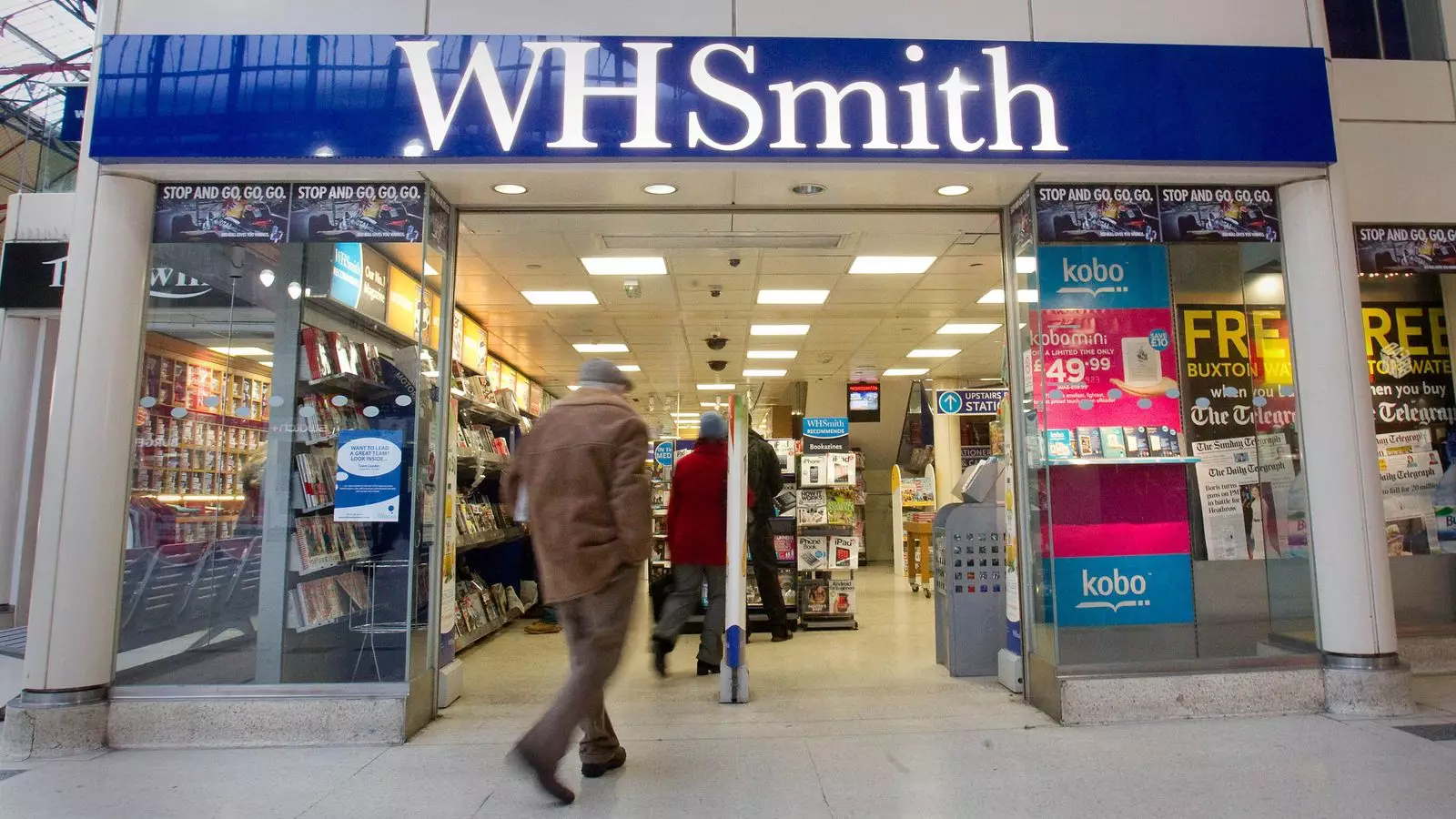WH Smith, a stalwart of the British high street since its inception in 1792, is reportedly in negotiations to sell its high street operations. This potential divestment sheds light on the significant shifts occurring within the retail landscape in the UK, as the company seeks to reposition itself in line with current market demands. With a market capitalization nearing £1.5 billion, WH Smith’s decision to contemplate the sale of its high street arm—a division that has served as a cornerstone of its identity for over 230 years—speaks to the challenges and transformations faced by traditional retail businesses in an evolving economic climate.
The retail sector has witnessed a seismic shift, particularly in the wake of the pandemic. High streets across the nation have suffered from vacancy rates and declining foot traffic, a trend exacerbated by the rise of digital commerce and changing customer preferences. WH Smith’s high street division, consisting of about 500 stores and employing approximately 5,000 individuals, is emblematic of this phenomenon. The company has been proactive, exploring various strategic options, including potential buyers for this beleaguered segment of its business, particularly as it aligns itself more firmly with its travel brand, which has shown marked profitability. Noteworthily, the travel retail arm, which operates from airports and train stations, has grown robustly and now represents 75% of WH Smith’s overall revenue.
WH Smith’s transition towards enhancing its travel retail business can be seen as both a sensible pivot and a necessary adaptation. The travel division has not only proved more lucrative but has also offered a diverse product range that includes food, drinks, and technology, distancing itself from the traditional offerings of books and greeting cards that characterize the high street stores. As evidenced by recent financial reports, this shift is already yielding dividends, significantly contributing to 85% of the group’s trading profits. This indicates a pressing need for WH Smith to adapt to a rapidly changing retail environment with more favorable margins and growth potential.
Challenges and Future Outlook
The decision to pursue the sale of the high street segment is not without its difficulties. WH Smith’s traditional market mirrors broader trends affecting many retailers, with several notable UK brands—like BHS and Debenhams—having exited the market entirely. Therein lies a dual challenge; not only must WH Smith find viable buyers for its high street business, but it must also reassure emerging investors regarding its long-term viability centered on travel retail. While the announcement is yet to be formally disclosed to the London Stock Exchange, it reflects the urgency behind WH Smith’s commitment to focusing on lucrative sectors.
Additionally, the competitive landscape of travel retail is intensifying. WH Smith must maintain its growth trajectory amidst increasing competition both domestically and, notably, in international markets such as the US, where the brand’s travel retail operations have seen particularly rapid expansion.
The sale of WH Smith’s high street operations will mark a significant turning point in the company’s storied legacy. This transition emphasizes a vital adaptability characteristic of long-standing brands striving to remain relevant in contemporary retail. The choices made by WH Smith hinge not just on immediate financial returns, but also on long-term strategic positioning in the global marketplace.
As WH Smith embarks on this new chapter, the potential sale is more than merely a financial maneuver; it symbolizes a paradigm shift for a company at the crossroads of tradition and modernity. As the retail environment continues to evolve, WH Smith’s future endeavors will require both innovation and a commitment to reshaping the brand for the demands of a newer, faster-paced market. The hopes are that this move will allow WH Smith to flourish in a condensed field of strong contenders, allowing it to emerge not as a relic of the past, but as a beacon for the future of retail.


Leave a Reply